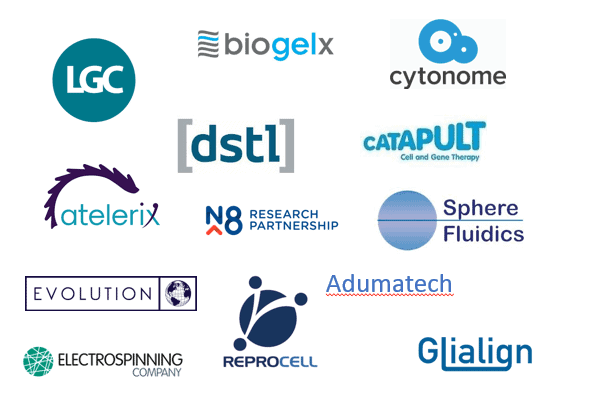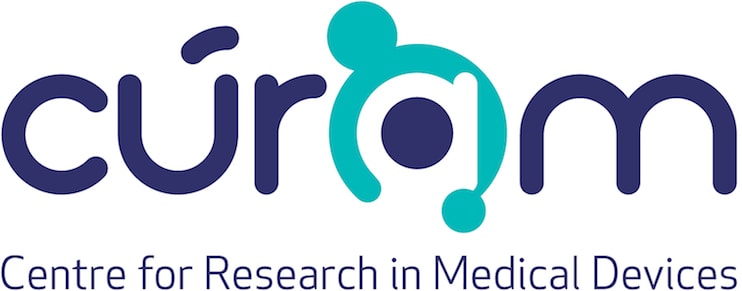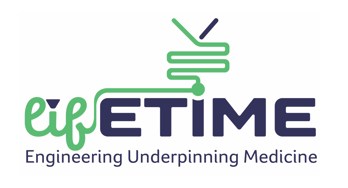LifETIME CDT Adapts to Lockdown
By Michelle Carmichael (LifETIME CDT Coordinator)
Due to the COVID-19 pandemic we have been living in unprecedented times for the last 14 weeks. The LifETIME CDT management team have worked together during this time to ensure that the CDT students continue with their skills training programme and continue to grow as a cohort. This blog provides a summary of how we have adapted to the COVID-19 pandemic, what has been implemented and our plans for moving forward.
One month after lockdown, we were due to attend the first week-long retreat to The Burn, a stately home in the Scottish highlands. Sadly, this had to be cancelled due to the current COVID pandemic. The priority for my team was to move all the training that was due to take place at the retreat online. We were enthusiastic that the training could be delivered as planned, albeit in a different format.
I worked with Skillsfluence who delivered connecting with industry and IP training and Couto Phoenix Consulting who delivered Responsible Research Innovation training. Both providers kindly adapted some of training content as it had never been delivered in an online format before. They both provided high quality training which included live webinars and small group discussions. The small group discussions allowed the trainer to get to know the students and it gave the opportunity for the students to interact with each other and continue to build a strong cohort.
After realising the possibilities of online training, we looked to see what future training could potentially be brought forward. It is at this point that the LifETIME team really came together. Our CDT supervisors very kindly took the time to deliver a multidisciplinary lecture about their research. We spoke to all our industrial partners individual using zoom and have received fantastic in-kind support from them during lockdown. Pulling in our partners enabled us to host a careers series. This ran over ten different interactive sessions with industry partners talking to students about their career and answering questions. I would like to say a special thank you to all the partners who made this a success:
- Mick Mclean, CEO of Atelerix
- Chris Allan, Development Scientist at Biogelx
- Annette Bramley, Director at N8 Research
- Abigail Spears, dstl
- Mustafa Munye, Lead Scientist at Catapult
- Ann Kramer, CEO of The electrospining company
- Alison Clayton, CEO of Biogelx
- John Sharpe, CEO of Cytonome
The first LifETIME dragon’s den competition took place this week. This has given the students an opportunity to work as a multidisciplinary, cross-university team to explore business start-up ideas, create a business plan and pitch to a judging panel. A range of online business, marketing and financial planning training was provided in advance of the competition.
We would like to say a special thank you to everyone who has taken the time to train, mentor and judge the students, making this competition possible:
Academic Mentors: Dr Eric Hill (Aston University), Dr David France (University of Glasgow), Prof Carl Goodyear (University of Glasgow).
Industrial Mentors: Fergus McKenzie (Adumatech), Dr Mick Mclean (Atelerix) and Ann Kramer (The Electrospinning Company).
Trainers: Dr Peter Childs (Strathclyde University) and Frank Rinaldi (Evolution Bioscience). We particularly thank Frank for sharing so much market and start-up experience.
Judges: Prof Alicia El Haj (University of Birmingham), Julian Braybrook (LGC), John Sinden (Glialign Ltd), Frank Craig (Sphere Fluidics), Dr Peter Childs (Strathclyde University).
In total the students have spent over 30 hours enjoying high quality training, this does not include the amount of time spent working on assessments and group activities. We have worked with trainers, supervisors and partners to enhance both the training and the cohort and have done this very successfully.
We identified the positives to moving the training online very quickly:
- Mental health and wellbeing – The students’ mental health is a priority for us. We did not want students to be at home, feeling bored, and for some with no family around. Our students have been kept busy and they have very much engaged with this. Coffee chats run fortnightly via zoom to discuss any worries or concerns that they may have.
- Reduce the time away from labs in the future – As time has been available during lockdown, training which was planned for future years has been brought forward. This has provided the added advantage that in the future when labs reopen, the students can fully focus on their research and will not be required to take time away from the labs to attend training.
What have the students thought about our approach:
“Excellent – All the training modules were very informative and gave me a better idea about the different career options available after the completion of my PhD”
“Good – Learned about IP issues. The industry module helped me identify shortcomings to focus on. Multidisciplinary science was very informative.”
“All the sessions were very interactive with the breakout rooms in the zoom calls and enables all of us to share and discuss our different perspectives”
As the UK now enters a new COVID recovery phase with labs starting to open, a blended training approach will be adapted. Online training will continue one afternoon each week. This will include quality assurance training, delivered by industrial partner LCG. Leadership training and a self-study project management course will also be delivered by MyConsultants.
The LifETIME CDT is now looking forward to welcoming the new cohort at the start of October. The new cohort will have a different start to the programme from what was initially hoped. We normally begin with a 3-week rotational training programme, which is a week-long training session at each of the University locations (Birmingham, Galway and Glasgow). This will still take place for the new cohort, but it will be slightly delayed. The new cohort will begin their training following the blended training model. Students will join their research group on 1st October and will take part in weekly online skills training. Online cohort building activities to give students the opportunity to get to know each other will also be delivered. We also have other contingency plans in place if for any reason the students were unable to start in October due to the pandemic.
The CDT and the students have adapted seamlessly to the unprecedented situation. My team was enthusiastic about online training from a very early stage and could see the advantages to adapting the training to suit the online format. Over the last 14 weeks the management have worked together, we are more engaged with our partners and the students have had a very positive period of training.
The partners who have supported us during this time are acknowledged below.








